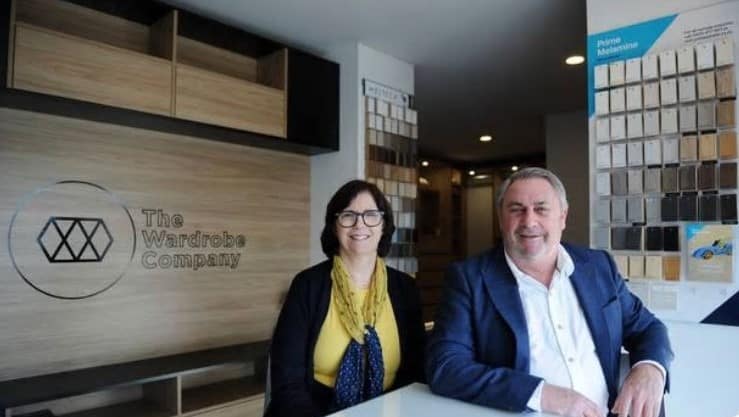Read below an article recently published in The New Zealand Herald

How The Wardrobe Company survived first lockdown and its advice for others
Looking after your staff outside of your working relationship is the best thing you can do for your business in the long run, says one Auckland entrepreneur.
Greg Clinch, co-owner and director of The Wardrobe Company, which he runs with his wife Darel, said it is important that employers make themselves available to offer support to their team in any aspect of their life, especially during times of uncertainty.
Extended periods of lockdown are not only challenging for business prospects, but for the mental health of its employees. Clinch recommends employers use any period of quiet trade to check in with their staff personally. The North Shore business, which has been operating for close to 30 years, is practising what it preaches and since the first wave of lockdown has been using its experience to offer financial advice for its 20 staff.
“Be as supportive as you can in all ways to your team members. I’ve got 40 years of business experience and I made it clear to our staff that if anybody wanted any advice as to managing their finances or dealing with the bank that they were to do so and I was pleased that two of them did accept my advice to the point where they were using me as a sounding board when they wanted to deal with the bank to obtain mortgage holidays,” Clinch told the Herald.
Aside from being available to staff, Clinch said the most valuable lesson he had learnt during the first lockdown period was to be prepared and ready to go again – and likewise to work remotely – at a moment’s notice.
“All businesses should be prepared at short notice to be able to have as many of their team as possible operating from home,” he said.
As soon as The Wardrobe Company found out that the country would move into alert level 4 lockdown in March, it stocked up and ordered in additional supplies of its cabinet componentry so that it was prepared to restart operations when restriction lifted. It also set its design and sales team up with the ability to work from home. Sales dried up during lockdown and its installation activity stopped, but it instead focused on the design aspect of its business during that time, Clinch said. He said that it was important that businesses continue to operate in any way they could, including going ahead with plans that were already in the pipeline.
For The Wardrobe Company, that included continuing to advertise and to update its marketing campaign to let people know it was still open for business.
It has since experienced an increase in home office set-ups in addition to its wardrobe fit-outs.
“Our thoughts were; ‘People are at home and they are going to start looking at their home surroundings and what they don’t like about it or what they can improve’, and we found it worked,” Clinch said.
“Our people did several dozen designs and quotes during that lockdown.”
Some of the best businesses were born during economic crisis and there was no better time to pivot or start a new firm, he said, adding that businesses should think outside of the box to continue during times of uncertainty like they had done the first time round.
“Businesses stopped in their tracks what they were doing and swung around to do something entirely different – the true entrepreneurial spirit came out in a lot of people.
“Dig in and do whatever it takes to survive because its the future of your business and the future of everybody that works for you that’s at stake.”
Top Tips
- Be prepared to change tack at a moments notice
- Look after the wellbeing of your staff
- Plan ahead; order in additional supplies, have remote working ready
- Carry on with plans you had in the pipeline; marketing, market launch
- Use your background and expertise to help others


